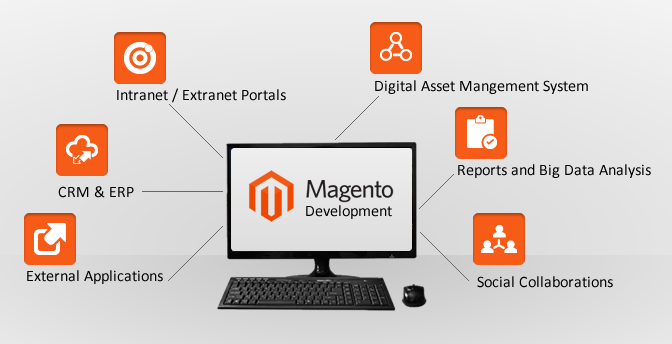Business owners in Florida face a tough call these days. You will hear the same conversation, whether you walk through any Miami financial district or Tampa office building. Would it be more logical to bring in outside consultants or should firms employ their own IT security staff? Though no simple fix exists, the stakes could not be greater.
Cybersecurity is not debatable these days.
One breach can sink years of hard work. But spending money on the problem doesn’t guarantee results. Some companies build entire departments only to find themselves vulnerable. Others spend less and sleep better at night. What’s making the difference?
The Real Price Tag of Building Your Own IT Team
Let’s talk numbers, because they tell quite a story. A decent cybersecurity service in Florida doesn’t come cheap. It may figure somewhere between $85,000 and $130,000 per year. That’s just for one person. And one person can’t possibly cover everything a business needs.
Think about it. Networks need constant monitoring. Compliance documents pile up. Threats evolve daily. Companies end up hiring three, four, perhaps five experts. That salary line item suddenly surges past $300,000. And that represents just the beginning.
Benefits packages add 30% to base pay. Then there’s training. Cybersecurity is evolving rapidly; what worked last year might not work now. Certifications expire. Conferences cost money. A corporation intent on keeping its team sharp must set aside $15,000 to $25,000 annually for professional development.
Now add the tools. Enterprise firewalls cost at least $20,000. Each tool, including intrusion detection systems, endpoint protection, and security monitoring, has yearly renewal licensing fees. Soon, a medium-sized firm discovers it is shelling out another $50,000 only on software.
But here’s what really stings: The turnover. Good security people get poached constantly. When someone leaves, the company doesn’t just lose their expertise. Recruiting costs pile up. New hires need months to get up to speed. During that transition, vulnerabilities remain exposed. Studies show replacing a specialized IT employee costs about 150% of their annual salary when everything gets factored in.
What Changes When Companies Partner with Managed Providers
Managed IT services Tampa flips the entire model on its head. Instead of building a team from the ground up, businesses use a current pool of experts. Already equipped with the instruments, these vendors employ the experts and sustain the infrastructure.
The financial structure changes completely. Rather than juggling multiple expense categories, companies pay one predictable monthly fee. Budgets become straightforward. No surprise bills when a firewall dies or licensing comes up for renewal.
Coverage improves, too. Internal teams work business hours, with some on-call rotation. But cyber threats don’t punch a clock. Attacks often happen at 2 AM on Sunday. Managed providers staff their security operations centers 24/7. Something suspicious happens at midnight? It gets handled immediately.
Technology stays current almost automatically. Those expensive tools and platforms? They’re included in the service agreement. When better solutions emerge, providers upgrade their entire client base. Internal teams often struggle for years with outdated systems because budgets got approved months earlier and priorities shifted.
Response times matter enormously during security incidents. Managed providers see threats across hundreds of clients. They recognize patterns faster and shut down attacks quicker. An internal team might encounter a particular threat for the first time. A managed provider saw it last week at three other companies and already knows how to neutralize it.
Growing Without Hitting IT Roadblocks
Florida attracts ambitious companies. Tourism booms, real estate cycles up, tech startups multiply. Growth sounds great until IT becomes the bottleneck.
Scaling internal operations takes forever. Publish a job, then wait for applicants, interview over the weeks, make offers, negotiate, and onboard over the months. The company has changed, and different talents are demanded by the time the new employee makes a significant contribution.
The best IT managed service provider in Tampa, FL, works differently. A Tampa company opens a Jacksonville office? Coverage extends immediately. The provider’s existing team simply adds the new location to their monitoring. No hiring process, no training delay, no infrastructure gap.
Seasonal swings create another headache. Many Florida businesses ride the dramatic waves of tourism or agricultural cycles. Build a team for peak season, and they sit around during slow months, burning salary. Size the team for average demand, and they drown during surges. Managed providers adjust resources naturally because they’re spreading capacity across many clients. Your slow season overlaps with someone else’s rush.
Navigating Florida’s Compliance Maze
Compliance trips up more companies than actual security breaches do. Healthcare providers need HIPAA coverage. Financial services are regulated by a dozen different regulators. Any business processing credit cards must maintain PCI DSS standards. Each framework demands specific controls and mountains of documentation.
Internal teams understand the technical side pretty well. They can configure firewalls and set up access controls. But translating that work into audit-ready documentation? Different skill set entirely. And auditors don’t accept “trust me, we’ve got this handled.”
IT companies in Florida employ people who do nothing but compliance work. They know what auditors expect. They maintain documentation templates. They conduct practice audits so companies don’t get blindsided during the real thing.
Regulations change constantly, too. New requirements roll out, existing standards get updated, and enforcement priorities shift. Keeping track becomes a job by itself. Managed providers monitor regulatory developments because their business depends on it. Clients stay compliant without dedicating resources to tracking every update.
What Returns Actually Look Like
ROI calculations reveal some eye-opening gaps between approaches. Take a Tampa company with 75 employees. Developing an effective interior security team calls for at least three full-time specialists. Together, compensation, advantages, training, and tools come to about $350,000 annually.
Comprehensive managed services for that same company?
Usually between $120,000 and $180,000 yearly. Half the cost, larger knowledge, enhanced coverage, and more modern technology.
The financial advantages extend beyond direct spending. Leadership teams report something interesting when they shift IT responsibilities externally. They spend way less time managing technology headaches. Rather, they concentrate on strategy, expansion, and revenue. Staff members also see fewer interruptions.
Productivity stays high because systems just work.
Downtime costs real money. Every hour the network stays down, the company bleeds revenue. Managed providers’ proactive monitoring catches problems before they explode into outages. Their rapid response minimizes disruption when issues do occur. For many businesses, avoiding just one major incident annually justifies the entire managed services investment.
When Mixing Models Makes Sense
Some organizations split the difference. They keep a small internal IT presence while partnering with managed providers for specialized functions. This hybrid approach works particularly well for companies with unusual systems or proprietary technology.
Under these arrangements, internal people handle daily user support and maintain knowledge about business-specific applications. External partners manage network security, infrastructure monitoring, backup operations, and compliance activities. Each side does what it does best.
Hybrid setups need clear boundaries, though. Defining jobs precisely, creating escalation processes, and keeping consistent contact will determine success. Properly executed, this strategy provides customized protection matched with specific corporate needs.
Figuring Out the Right Path Forward
Several factors should drive this decision. Company size matters significantly. Companies with fewer than 100 employees seldom justify the expense of a whole internal security staff.
The math simply doesn’t work. Companies with 500+ employees might find internal operations viable, though many still prefer managed models for specific functions.
Industry plays a big role. Heavily regulated sectors such as healthcare and finance benefit greatly from managed providers’ compliance expertise. Less regulated industries enjoy greater flexibility but still appreciate the cost advantages and depth of knowledge that managed services offer.
Growth plans influence the choice, too. Businesses planning rapid expansion often struggle to scale their internal IT. Managed partnerships make scaling more seamless, making them attractive for companies with big ambitions. Stable businesses with minimal growth plans might build sustainable internal operations.
Technical complexity factors in as well. Organizations running specialized systems or proprietary platforms may need internal expertise. Companies operating standard business applications find that managed services effectively handle their needs.
Conclusion
Most Florida businesses lean toward managed IT services in Tampa once they crunch the numbers and consider the full picture. The cost advantages, depth of expertise, scalability, and compliance support delivered by professional IT partners are tough for internal teams to match.
Tampa’s competitive environment demands smart resource allocation. Pouring capital into IT infrastructure diverts money from core business functions. The managed model transforms IT from a constantly hungry cost center into a predictable expense delivering clear value.
Florida companies pursuing digital transformation, managing regulatory complexity, or scaling operations find particularly strong alignment with managed approaches. The model removes technical obstacles that slow progress, freeing leadership to focus on customers and revenue growth.
Take Control of Your IT Security Today
One of the best IT companies in Tampa, FL, B&L PC Solutions, understands the problems Florida companies face. We provide all-encompassing security, effortless compliance help, and timely technical support, keeping operations running smoothly.
Whether a business needs complete IT outsourcing or strategic support for existing internal staff, B&L PC Solutions builds customized solutions matching specific requirements. Our approach prioritizes understanding organizational goals before recommending technology.
IT security challenges shouldn’t hold business growth hostage. Contact B&L PC Solutions today for a technology assessment. Learn how our managed IT solutions change security operations, save expenses, and prepare Florida businesses for continuing success in a digital world.
Visit our website or call our IT expert, who is familiar with local company needs.





